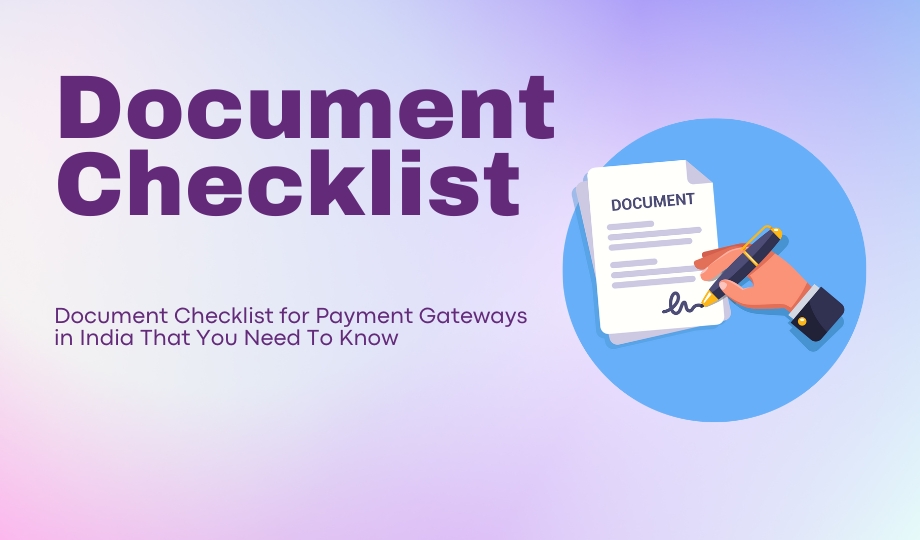Receiving payments from customers through payment gateways has never been easier for businesses. However, navigating the document submission process can be overwhelming. Our blog provides tailored guidance on the required documents, specific to your business type. We also delve into the importance of KYC and KYB and how they benefit businesses. By the end, you’ll be well-prepared to integrate your chosen payment gateway.
Major Types of Businesses in India
Limited Liability Partnership (LLP)
A blend of corporation and partnership.
Partners have limited liability, protecting personal assets.
Commonly chosen by auditing firms, IT companies, dental offices, and business consultancies.
Non-Governmental Organization (NGO)
Not-for-profit organizations working independently.
Operate at local, national, or international levels for shared social or political goals.
Private Limited (Ltd.)
Managed by a small group of individuals.
Does not issue stocks to the general public.
Examples include Google India Pvt. Ltd.
Partnership
Agreement between two or more co-owners.
Profits, losses, and responsibilities
Public Limited
Issues shares to the general public.
Has limited liability.
Examples include SAIL Ltd, ONGC Ltd, and BHE Ltd.
Sole Proprietorship
Owned and managed by a single individual.
Owner is liable for all business profits and losses.
Common among small businesses like local stores, freelancers, and consultants.
Trust
Trustor allows the trustee to hold assets for a third party’s benefit.
Set up to legally protect trustor’s assets.
Hindu Undivided Family (HUF)
Comprises direct descendants of a common ancestor.
No contract needed; automatically established in a Hindu family.
Understanding KYC and KYB
KYC (Know Your Customer): Verification requirement used by banking institutions to verify customer identities, preventing fraud.
KYB (Know Your Business): Business counterpart to KYC, where businesses’ identities are verified. More documentation may be required than for individuals.
Why Payment Gateways Require KYC/KYB
Payment gateways aim to facilitate payments and protect against fraud and financial risks. KYC and KYB processes ensure customers are genuine, reducing money laundering and fraud risks.
Document Requirements by Business Type
Here’s a table detailing the documents needed for different business types:
Business Type Proof Required Supporting Documents
LLP/Private Limited/Public Limited Proof of Business Identity Certificate of Incorporation, Income Tax Registration (Company PAN Card), Identity proof (e.g., Aadhar Card, Voter Card, DL, Passport)
Sole Proprietorship Proof of Business Identity and Existence VAT Registration, Shops and Establishments Certificate, Trade License, TIN, GST Certificate, Current Account company bank statement, Income Tax Registration (PAN Card), Identity proof
Partnership Proof of Business Identity Registered Partnership Deed, Sales Tax Registration, VAT/TIN Registration, Shops and Establishments Certificate, Trade License, Current Account Statement, Income Tax Registration (Company PAN Card), Identity proof
Trust/NGO Proof of Business Identity and Existence Registered Trust Deed, Sales Tax Registration, VAT/TIN Registration, Trade License, Current Account Statement, Income Tax Registration (Company PAN Card), Identity proof
HUF Proof of Business Identity and Existence Registered HUF Deed, Sales Tax Registration, VAT/TIN Registration, Trade License, Current Account Statement, Income Tax Registration (Company PAN Card), Identity proof
Conclusion
To enhance your business and efficiently integrate a payment gateway, the first step is to gather the required documents. With our comprehensive KYB process in place, you can easily and seamlessly start accepting payments while serving a broader customer base.

